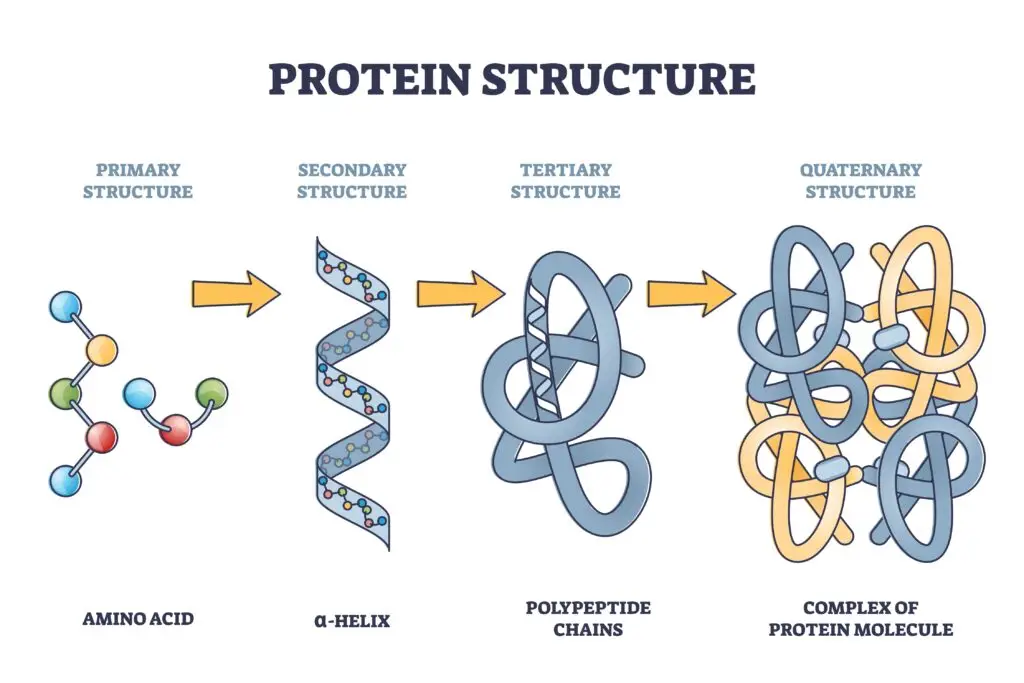Protein
What is Protein?
A protein is a large, complex molecule composed of amino acids that plays a critical role in the structure, function, and regulation of the body’s cells, tissues, and organs. Proteins are essential for nearly every biological process within an organism.
Structure and Function
Proteins have a unique structure and play many important roles in the body. They are made up of smaller building blocks called amino acids. These amino acids link together in a specific order, forming a long chain. Once the chain is complete, it folds into a special shape. The shape of a protein is very important because it determines what the protein can do.
Proteins have many different functions in the body. Some proteins, like enzymes, help speed up chemical reactions, making processes in the body happen faster. Other proteins, like antibodies, help protect the body from infections by fighting off harmful bacteria and viruses. Structural proteins, such as collagen, give support to cells and tissues, helping keep things strong and stable.
So, proteins have a specific structure made of amino acids, and their shape helps them perform specific jobs. They are essential for growth, repair, and overall health in the body.
Protein Synthesis
Protein synthesis is the process cells use to make proteins, which are essential for almost everything in the body. This process happens in two main steps: transcription and translation.
In transcription, the cell makes a copy of the DNA instructions for a protein. DNA lives in the cell’s nucleus, but proteins are made outside the nucleus. So, the cell creates a copy of the DNA instructions in the form of messenger RNA (mRNA). This mRNA then travels out of the nucleus to a part of the cell called the ribosome.
The second step is translation. In translation, the ribosome reads the mRNA instructions and begins assembling amino acids in the right order to form a protein. Amino acids are like building blocks that make up the protein chain. As each amino acid is added, the chain grows longer until the protein is complete.
Finally, the new protein folds into its proper shape, ready to do its job in the cell. This process of protein synthesis is important because proteins keep the body functioning, repairing cells, and supporting growth.
